 Conversation with Marcel Mars about his project Public Library
. The
Artist/hacker Marcel Mars agues that the concept of the public library is
right up there with public education, public health care and the scientific
method as a both a great achievement and social good to which almost
everybody subscribes to as a non-negotiable public good. Taking the concept
of the public library as a benchmark against which to measure what society
and culture should be like and an indication that an economy of contribution
is possible. Where there is a will there is a way.
Conversation with Marcel Mars about his project Public Library
. The
Artist/hacker Marcel Mars agues that the concept of the public library is
right up there with public education, public health care and the scientific
method as a both a great achievement and social good to which almost
everybody subscribes to as a non-negotiable public good. Taking the concept
of the public library as a benchmark against which to measure what society
and culture should be like and an indication that an economy of contribution
is possible. Where there is a will there is a way.
Mars’s project has taken this broad consensus as the basis for Public Library and on-line book sharing project which promulgates the utopian hacker ethic of the universal space of free exchange of all knowledge by seeking to fuse a number of existing internet based projects for either managing or exchanging electronic publications (such as Calibre) along with his own plug ins to create a peer 2 peer culture for the exchange of books.
I began by seeing ‘Public Library’ seen as a kind of anti-capitalist equivalent Amazon. In that for Amazon “Books are Amazon’s version of “a gateway drug.” .. ‘It wasn’t a love of books that led him [Jeff Bezos] to start an online bookstore. “It was totally based on the property of books as a product” Shel Kaphan, Bezos’s former deputy, says. “Books are easy to ship and hard to break” (New Yorker – Cheap Words, 17th Feb 2014)
Marcel Mars may love books more than Bezos but what they share is the notion of the book as a means to a higher stakes game. The substance of his “Public Library” project lies not primarily in books themselves but in the ways in which he creatively exploits their character to play for higher stakes. He takes the broad consensus (across the political spectrum) that public libraries are an essential component of any democratic, habitable society. He then proceeds to extrapolate from this consensus to wider a wider set of arguments on the moral poverty of wider Intellectual property regimes and thus the heart of 21st century informational capitalism itself. Moreover (although he is an artist) his intervention is not restricted to the symbolic realm or the gallery but through the provocation of direct action by developing a functioning peer2-peer “public library” application.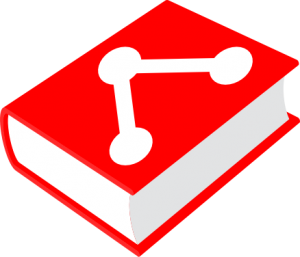
The project raises many questions particularly at a point of crisis for independent publishing, small book stores and decent news media. If Marcel and his associates (I count myself among them) were to be successful could they wind up being as bad for books as Amazon has been for small publishers and independent book shops? (and maybe even physical libraries that perform many important functions in the street life of many local communities).
David Garcia: This hacker beliefe in the possibility of creating a universal spaces of free exchange can have the unintended consequences of eroding the specificties of community. I see this as the rise of technological formalism akin to the Greenberg?s authoritarian cold-war formalism of late 20th century abstraction in the visual arts.
Marcel Mars: I absolutely agree on that one. That’s why i insist on people being librarians. Software should always build on top of communication need, or need of particular community. That’s how software becomes social. Designing sociality by designing desires by developing software is not the (social) way software should go. It just fails in both worlds (techno + social). Even if it gets some venture capital on its way.
DG: The independent publishing sector has been decimated and I think World Memory should be careful that its efforts is seen to be addressing rather than hastening this process.
MM: I spent a lot of time in the past thinking about sustainable business models in art & culture production. A long time ago (in 2000) together with others I started GNU GPL (later CC Share-A-Like)music & video label – EGOBOO.bits. In its very narrow market niche it was quite successful (e.g getting #1 hit by Zvuk broda at Croatian national TV). That discussion only brings false hopes from all around. Operating in the world where scarcity is moved into attention time is not about business. It’s about something else. Wasting our time on that false hope just gives time to those who are building network infrastructures based on wet dreams of venture capitalists. “I prefer to revert to the simple communist argument. The working class should be empowered. working class should rule its own destiny. Small/indie businesses are not the solution.” I don’t want to get (again) into these talks with people running their small ((rather not) sustainable) business. When I can see that’s what coming in discussion I prefer to revert the whole argument into good old communist one. A working class should be empowered. We, workers, should rule our own destiny. Small/indie businesses are not the keywords, or goals, which will lead us there. Solidarity should become essential part of our culture. I don’t see that any legal protection will solve the problem of the time of scarce attention. Not the one based on intellectual property metaphor. There we need serious reboot. A reboot starting by abolishing intellectual property as such ;) Then: solidarity, worker’s rights, labour. That’s the scarce and valuable time we need to protect.
I know that very few people will have enough time to listen this rather complex argument (on the importance of abolishing/rebooting of intellectual property regime). That’s why I (tactically) avoid talking on that particular subject and rather go with a narrative saying: (the very idea of) public library should be defended. Very few such a wonderful dreams became true. And we, people, are proud of it. Let’s defend it and then build further on top of that dream. At the moment our dream is under attack. Mobilize!
DG: Thinking about your project in its totality I found myself dividing into 6 distinctive parts. Would you respond to each of these in turn. To begin with (Part 1) “Public Library” is an artwork substituting Joseph Beuys’s “everyone an artist” for every one a librarian. You have sometimes argued that the role of artist offers some special kind of licence and protection for necessary acts of civil disobedience.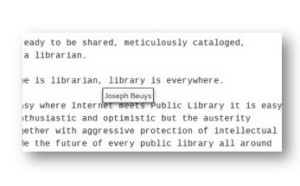
MM: Yes. I’m glad you noticed that. From early beginning of Public library web site there was a small easter-egg: if you moved your mouse over one particular paragraph his name would appear.
A room to play is on many different corners of our world. If you have some nasty greedy agenda and want to exploit people and natural resources you start up a business, a company. If you have some political agenda on your mind the only way to go for it is to exploit freedom of expression so you have to articulate your mission through art. If it establishes itself as some relevant threat to the system it will become “controversial” and an act of civil disobedience. When the system is fucked up as it is now, civil disobedience is necessarry. We witnessed all of that in case of Aaron Swartz. Reaching for protection from the art context for sure weakens the political agenda but, hopefully, strengthen the security of an actor.
DG: Part 2. Public Library is a classic hacker utopian social enterprise designed to create a universal space of free to exchange of all published forms of human knowledge. Would you agree?
MM: Yes that’s why I use the Dream Reference
DG: Part 3. – Would you agree that Public Library should not only about exchanging books but also function as a living archive in that it is operating as a social network of the human “librarians” acting out all the communicative impulses of fans and other knowledgeable people (seen in independent book-shops/media stores) who are happy to share their knowledge through the tools and networks you are developing a social media platform to facilitate this dimension of sociality.
MM: This is the hardest one. Network effect in its best/worst. As yet this aspect is really under developed. The very good thing about books is that Universe-of-All-books is achievable, reachable, comprehensibl?. Books are small. It’s mostly text. Text is small. Even in Unicode ;)
I really think we can do a lot (I mean A LOT) with only few dozen of librarians. That’s still a social network but not the one that depends much on the ‘network effect’ (like in millions). Still, a few dozens of librarians should have at least be an order of magnitude more than “users” . Avid readers. Or at least people who like to, from time to time, unpack their libraries ;)
DG Part 4. Public Library is a political campaign confronting the unparraleled threat to existing public libraries around the world
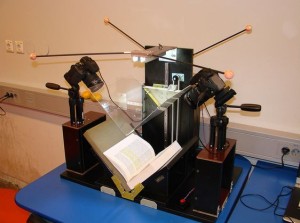 MM Ha, another hard one. It’s hard to get the ‘real’ libraries/librarians loud and active. Part of the establishment of that dream, of public library, is that people working in the public libraries are public sector workers. They are not known to be particularly brave kind of people. In the time of crisis.
MM Ha, another hard one. It’s hard to get the ‘real’ libraries/librarians loud and active. Part of the establishment of that dream, of public library, is that people working in the public libraries are public sector workers. They are not known to be particularly brave kind of people. In the time of crisis.
There is one thing I remember from Creative Commons time. There was always too much of a respect for artists and the art world. That stupid fantasy how creative people are special and that they have a mandate to control their own destiny. The consequences of that fantasy, of geniuses, of author, but more than that of intellectual property (related to the fantasy) have had always had a consequences way beyond the art world. And at the same time (history of) art was just good enough to critically deal with these issues. Creative Commons never recognized avangard art as a good representative of art world. What a pity. But that’s maybe just the bourgeois lawyers ambient happening there ;)
Knowing all of that, or being a very active in the whole Creative Commons business, now, I’m not afraid of talking on behalf of librarians without any “real” librarians supporting me. Just the same I would do, if I only could, to talk on behalf of working class. I’m a librarian! I’m a working class! Workers of world, unite! :)
DG Part 5. The project is an attempt to persuade public libraries to embrace the huge possibilities that the digital domain offers to take the concept of public libraries to their logical conclusion.
MM: I would say that this will come much later (if project will ever become that successful). I’m not without hope.
DG: Part 6. as a hack – focused on developing technical tools to integrate the various initiatives into a coherent unified program moving together in one direction.
MM: Yes. I’m super happy that Sean and Du’an, during this whole process of starting Public library, became my very good friends and that we share the common vision of the necessity to take better care of metadata and that while harvesting job could be done collaboratively by amateur librarians. Hopefully soon, both AAAAARG and Monoskop will get some software tools which enthusiasts and supporters will be able to use to take better care of this amazing catalogs. Sync and share.
DG: In place of everyone a librarian how about “everyone a curator”? The role of curator (even curating one’s own profile on social media) seems to me to be a more accurate characterisation of the current state of affairs in all fields- moving from a “creative economy” to a “curative economy”. Unlike librarian modern curating (not only in art) has personal expressive dimension in which the personality/ego of the curators are a necessary factor in shaping a collection. Traditionally a public librarian is a public servant who is there to provide universal access to everything without fear or favour neither judging or selecting -The latter judge is the job of the reader. Does not this double function of “creative” librarian create confusion? “The game is to play revolution from conservative positions :)”
MM: I see the point. I’m a little bit afraid of articulating Public library through emphasize on curation, especially without a strong focus on catalog. Art/curating plays a lot with twists around canons/standards and anything well established. I like that. Still, in this particular context we also need very strong anchors. Something well established, through the whole political spectrum. So no one can object. Playfullness, from political perspective, is always easy to object. So, I think our anchors are: 1) catalog 2) humans as librarians; and 3) the very public library as institution. This time, the (move in the) game is to play revolution from conservative positions :)
DG: As you point out there are quite a quite a few related initiatives Open Library, Genesis and Open library is the initiative prepared to pragmatically use whatever is to hand to unify these initiatives into a single direction.
MM: Yes. I got my friends at Leuphana University interested in supporting Open Library, as we heard project doesn?t have very active support at the moment, so Leuphana would like to propose strategic partnership with Archive.org on that project. Good. There is a Piracy lab at Columbia NY, and few more projects coming from academia which are not afraid to deal with so called piracy. I think it is very relevant to cover that whole phenomena. People all around the world do care about knowledge and make how to make the access happen. That knowledge should be of interest of anyone caring about education, access to knowledge and we need projects which will talk openly about that. Because the whole set up with scientific publishing, access to books, to knowledge, to some extent anything digital is in a deadlock and institutions together with people “with something to lose” have to play dumb. Kids covering their eyes when downloading from AAAAARG, Library Genesis, UbuWeb or Monoskop, but more importantly still doing the same when we should discuss that. I don?t want to judge anyone here but I can see there is a need to talk openly about that.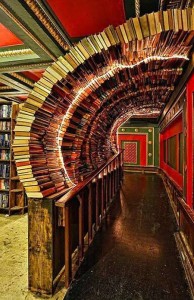
DG: It would be great to have a “next steps” section for the project so those of us who would like to join and do not have the obvious programming skills can discover in what way they might be useful.
MM: Yes. After few workshops I moved from running [let’s share books] from terminal into proper point&click Calibre plugin but it is still far away from being super user friendly. Hopefully, friendly enough for few dozens of amateur librarians (mentioned before) :)
DG: Is there a clear way in for non-technical users or even techno-phobes to embrace your sharebooks application do you have a simple intro-video as Calibre does to introduce non-techs to the Public Library offer. Maybe it would be useful to separate Argument and Advocacy and so introduce a basic “user manual” PL for Dummies?
MM:I only did this screencast (long time ago):
http://www.youtube.com/watch?v=oQraoDMJErg&list=PL2F263E5C19F2F577&ind ex=5
It?s not on the website because I plan to do proper ?user manual? section on the web site. Soon. Still coding?
Related material
The Paradise of too Many Books- Mathew Fuller interviews Sean Dockray of LA branch of The Public School, a geographically distributed and online platform for the self-organisation of learning-
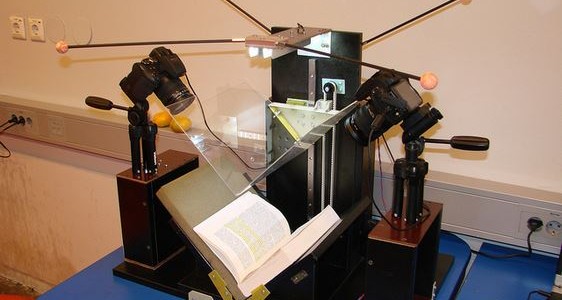
il levitra a cosa serve levitra 200 mg nedir